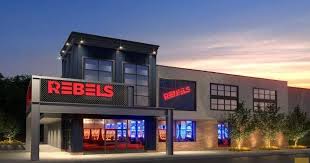
Casinos, with their opulent interiors and substantial cash flows, have long been a target for criminals seeking quick riches. The allure of robbing a casino is not just about money but also the thrill and challenge it presents. However, beyond the Hollywood glamorization, the risks associated with robbery at casino robberies are significant and multifaceted.
Introduction to Casino Robbery
Robbery at casino refers to the act of unlawfully taking money or valuables from a gambling establishment. This can occur through various means, including armed hold-ups, inside jobs orchestrated by employees, cyber theft targeting digital assets, or even physical theft of chips and cash.
Types of Casino Robberies
Armed Robberies
One of the most notorious forms of robbery at casino involves armed assailants storming the premises with weapons, threatening staff and patrons, and demanding cash or valuables.
Inside Jobs
These are robberies orchestrated by individuals with insider knowledge, such as employees or contractors, who exploit vulnerabilities in security systems to carry out thefts.
Cyber Theft
With the proliferation of online gambling platforms, cyber theft has become a significant concern for robbery at casino, involving hacking into systems to steal funds or sensitive information.
Chip Theft
Some thieves target the physical tokens used in casinos, known as chips, which have monetary value and can be cashed out or sold on the black market.
Factors Contributing to Casino Robberies
Several factors contribute to the vulnerability of casinos to robberies:
- Cash-Heavy Environment: Casinos deal primarily in cash, making them attractive targets for criminals looking for quick and untraceable funds.
- High-Value Assets: Beyond cash, casinos house valuable assets such as jewelry, artwork, and high-end electronics, increasing their appeal to thieves.
- Sophisticated Security Measures: While casinos invest heavily in security, their complex layouts and large crowds can create blind spots that criminals exploit.
- Location and Accessibility: Casinos are often located in areas with high crime rates or limited law enforcement presence, making them more susceptible to robberies.
Risks Faced by Casinos
The risks associated with casino robberies extend beyond immediate financial losses:
- Financial Loss: The direct loss of cash, chips, and other valuables can have a significant impact on a casino’s bottom line.
- Damage to Reputation: Robberies tarnish a casino’s reputation and may deter customers from visiting, leading to long-term revenue loss.
- Legal Consequences: Casinos may face legal action from victims of robberies, regulatory fines for security lapses, and increased scrutiny from law enforcement.
- Risk to Staff and Patrons: The safety of employees and customers is paramount, and robberies can result in injuries, trauma, or even loss of life.
Security Measures in Casinos
To mitigate the risks of robberies, casinos employ a range of security measures:
- Surveillance Systems: Casinos are equipped with extensive CCTV networks to monitor activities across the premises in real-time.
- Trained Security Personnel: Security guards undergo rigorous training to detect and respond to suspicious behavior effectively.
- Access Control Measures: Restricted areas are equipped with biometric locks and RFID technology to prevent unauthorized entry.
- Cash Management Protocols: Cash handling procedures are tightly regulated, with secure vaults, cash counting machines, and armored transport services employed to safeguard funds.
Famous Casino Robberies
Over the years, several high-profile casino robberies have captured the public’s imagination:
- The Bellagio Heist: In 2000, a group of armed men stole over $1 million in cash and chips from the Bellagio casino in Las Vegas, making a dramatic escape in a motorboat.
- The Stardust Robbery: In 1992, an armored car driver made off with $500,000 in cash from the Stardust Resort and Casino in Las Vegas, using his insider knowledge to evade security.
Preventive Measures for Casino Robberies
Casinos employ proactive strategies to prevent robberies:
- Risk Assessment: Regular security audits identify potential vulnerabilities and inform the implementation of countermeasures.
- Employee Training: Staff members receive comprehensive training on security protocols, emergency procedures, and how to recognize and report suspicious activity.
- Cooperation with Law Enforcement: Casinos collaborate with local police departments and regulatory agencies to share intelligence and coordinate responses to threats.
- Technology Advancements: Casinos invest in cutting-edge security technologies, such as facial recognition systems, drone surveillance, and AI-driven analytics, to enhance threat detection and response capabilities.
Impact of Robberies on the Casino Industry
The repercussions of casino robberies extend beyond individual establishments:
- Increased Regulations: Regulators may impose stricter security requirements and financial reporting standards on casinos in response to high-profile robberies.
- Changes in Security Protocols: Casinos adapt their security protocols in light of emerging threats, investing in new technologies and training programs to stay ahead of criminals.
- Loss of Consumer Trust: Publicized robberies erode trust in the safety and integrity of casinos, leading to decreased patronage and revenue loss across the industry.
Case Studies
Examining specific incidents provides insights into the modus operandi of casino robbers:
- MGM Grand Casino Robbery at casino: In 1993, a team of armed robbers stole $500,000 in cash and chips from the MGM Grand in Las Vegas, highlighting the vulnerabilities of even the most prestigious establishments.
- Caesars Palace Heist: In 2017, a man disguised as a construction worker walked into Caesars Palace in Las Vegas and made off with $1.5 million in cash from a casino cage, showcasing the audacity and cunning of modern-day thieves.
Public Perception and Media Coverage
The media often sensationalize casino robberies, portraying them as daring heists straight out of Hollywood movies. However, the reality is often less glamorous, with serious implications for affected individuals and communities.
International Perspectives
While Las Vegas may be synonymous with casino culture, casino robberies occur worldwide, albeit with variations in modus operandi and security measures. Cultural differences in attitudes toward gambling and law enforcement also influence the prevalence and nature of casino robberies.
Future Trends in Casino Security
As technology evolves, so do the tools and tactics casino robbers use. To stay ahead of the curve, casinos are exploring innovative security solutions:
- Integration of AI and Machine Learning: Predictive analytics and pattern recognition algorithms help identify potential threats before they materialize, allowing for proactive intervention.
- Biometric Authentication Systems: Facial recognition, fingerprint scanning, and iris recognition technologies enhance access control and reduce identity theft risk.
- Virtual Reality Simulations for Training: Immersive training scenarios prepare security personnel for real-world threats, improving response times and effectiveness.
Legal Ramifications
Those caught committing casino robberies face severe legal consequences:
- Prosecution of Perpetrators: Robbers are prosecuted to the fullest extent of the law, facing charges ranging from armed robbery at casino and burglary to assault and conspiracy.
- Civil Lawsuits Against Casinos: Victims of robberies may file civil lawsuits against casinos for negligence or inadequate security measures, seeking compensation for damages.
- Insurance Claims and Settlements: Casinos often carry extensive insurance coverage to mitigate financial losses resulting from robberies, though insurers may scrutinize claims to prevent fraud.
Psychological Impact on Victims
The aftermath of a casino robbery can have lasting psychological effects on victims:
- Trauma and Stress: Employees and patrons who experience or witness a robbery at casino may suffer from post-traumatic stress disorder (PTSD), anxiety, and depression.
- Support Services for Affected Individuals: Casinos provide counseling and support services to help victims cope with the emotional and psychological fallout of robberies, fostering resilience and recovery.
Conclusion
Casino robberies pose significant risks to both individual establishments and the broader industry, encompassing financial, reputational, and human costs. By implementing robust security measures, leveraging cutting-edge technologies, and fostering collaboration with law enforcement, casinos can mitigate these risks and ensure the safety and well-being of their staff and patrons.
Click here: How to Make the Most of Your Time at Rivermist Casino






